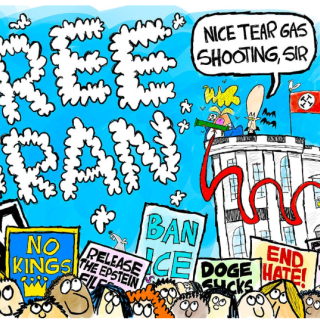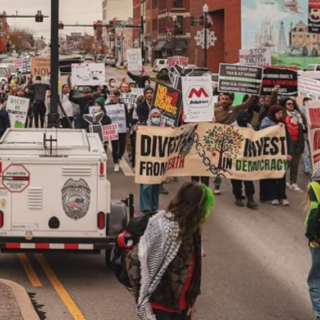In 1903 while speaking of the fame and popularity of his nemesis, Mr. Booker T. Washington, W. E. B. Dubois, the premiere Black intellectual of his day said, “Easily the most striking thing in the history of the American Negro since 1876 is the ascendancy of Mr. Booker T. Washington.” Change a few words, and the same thing might be said of the unexpectedly close and warm friendship of former President Barack Obama and former Vice President Joe Biden.
When both were in the United States Senate, neither thought much of the other. Biden was then the ranking Democrat on the Foreign Relations Committee; Obama was the lowly freshman. It is an oft repeated story that Obama thought Biden a windbag, so much so that when Biden was holding forth in a Senate Foreign Relations Committee as he was wont to do, Obama handed a note to Robert Gibbs, one of his advisors. It said, “Shoot. Me. Now.” Like another young, ambitious United States Senator, the late Robert F. Kennedy, Obama and the Senate were not a good fit. While he acknowledged and respected its historical place in American government, Obama found it too slow, too clubby, too mired in arcane rules, and too tightly tied to tradition, ceremony, and seniority.
Biden’s experience in and love for the Senate can be traced back to 1963, when at the age of twenty-one, he was sightseeing and managed to make it onto the floor of the chamber. He sat down in the Vice President’s chair and was caught by a Capitol police officer who took him to the basement for questioning. In 1972, he upset the incumbent senator, Cale Boggs, in a very close race at the tender age of twenty-nine, several weeks shy of his thirtieth birthday as required by the Constitution.
As pleased as he was about the victory, Biden felt a general unease in the last weeks of his campaign. Things were too good; something terrible was going to happen. Indeed an almost unspeakable tragedy struck. While Christmas shopping, his family’s car was hit by a tractor trailer. His wife, Nellia, and young daughter, Amy, were killed; his two sons, Beau and Hunter were badly injured.
Biden was no longer interested in the Senate. His sole focus was on being a good father to his sons. But his colleagues, Democrats and Republicans alike, convinced him to join them, and Biden was sworn in at the hospital beds of the boys. Taking the young widower under their collective wings, Senate colleagues phoned, dropped by his office unannounced, invited him to dinner, saw that he got good committee assignments, and took him to the steam room. Slowly, Biden came to love the Senate in all its iterations and foibles. He still considers those years as the honor of his life. Feeling as he did, it’s no wonder he saw Obama as an arrivistes and lightweight. By the time Obama arrived in January 2005, Biden was a seasoned and popular Senator who had been there for thirty-two years, and had briefly been a Democratic candidate for the presidency in 1988.
As the Democratic primaries of 2008 whittled the field down to Hilary Clinton and Obama continued to lead in the delegate count, he began thinking about his vice-presidential pick. Obama knew he needed a seasoned partner who was an expert on foreign policy. Although Biden had been in Washington for decades, Obama saw that as a plus, the better to have someone who could work with Congress, and especially the Senate. Accustomed to being the smartest person in the room, Obama was somewhat cocky–recall his ill-fated campaign against Congressman Bobby Rush in 2000–yet underneath that veneer, he was concerned about his lack of experience. He was also considering making generational change on the ticket, too. He considered two politicians closer to his age, Indiana Senator Evan Bayh, of Indiana, and 52 years old, and Tim Kaine, the governor of Virginia, and 51 years old. Although his sentimental choice was Kaine, the smart and necessary choice was Biden.
As the men and their staffs began to work together, they began to see each other differently. Obama found Biden smart, diligent, friendly with both sides of the aisle, and a family man. He was also a bit in awe at how for all his personal tragedies, health scares, and bloopers, Biden sill loved politics, was respected in Washington, and had faith in America’s future. Biden loved that Obama was such a devoted father and husband. He also appreciated the history that Obama’s run for the White House was making, and he wanted to join in that endeavor. Biden made it clear that he would always be loyal to Obama–it is said that neither Bayh or Kaine made a similar promise--and he wouldn’t have to worry about Biden’s personal ambitions. Obama’s daughters and Biden’s granddaughters became fast friends; Michelle Obama and Jill Biden bonded quickly and developed a great working relationship.
Of course there was the usual and expected tension between their staffs and the men themselves. As stated earlier, Biden talked and talked and talked, and is as well known for his gaffes as his professional chops. Obama was reserved to the point of seeming cold, but he began to loosen up, especially when the two men were together.
Now in the closing days of Biden’s last campaign for the presidency, Obama has joined him on the road, serving as his admirer, cheerleader, and closer. (Obama was right to let the 2020 Democratic primaries play out before endorsing Biden. Had he done otherwise, Biden and the rest of the country would forever wonder if the Vice President could make it on his own.) The current president has from day one has spent much of his time undoing virtually everything Obama did in his eight years in the White House. A Biden presidency would help restore the luster of Obama’s legacy.
Barack and Joe lacks the gravitas of Levingston’s previous book, The President and the Pastor, and it suffers a bit from his inability to get Obama and Biden to talk about their friendship on the record. Nevertheless, it’s a breezy and affable look at the dynamic friendship enjoyed by these men.



